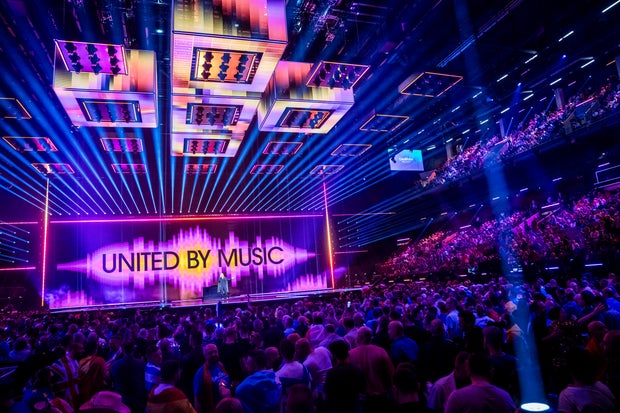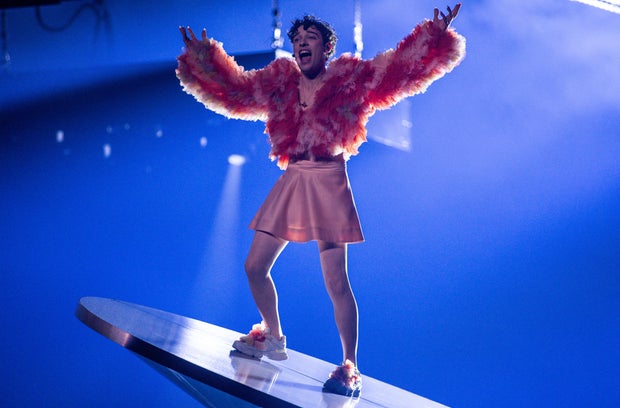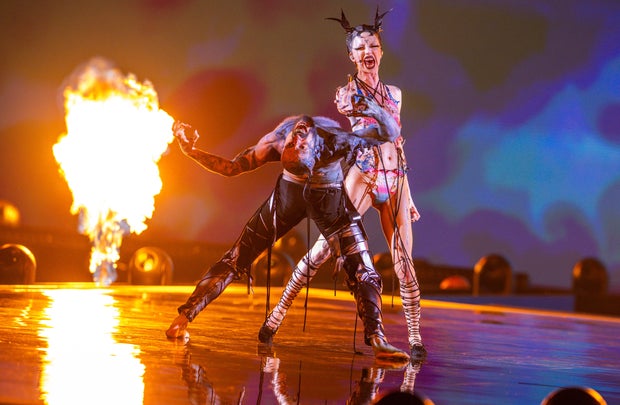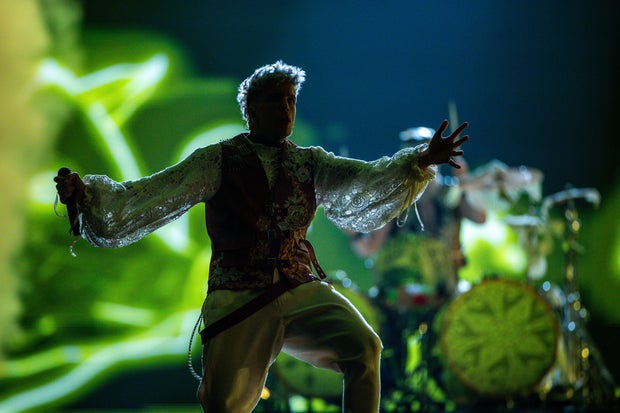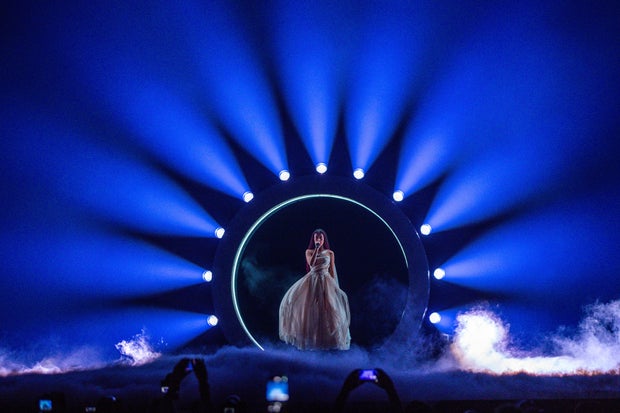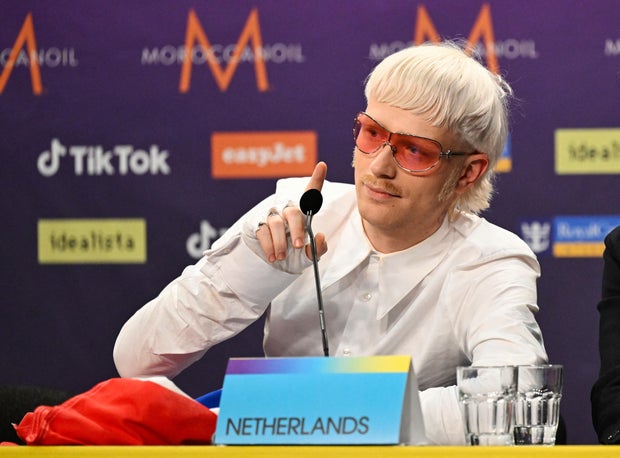Dozens of musicians, hundreds of journalists and thousands of music fans gathered in Malmo, Sweden, where the Eurovision Song Contest prepares for Saturday’s exuberant and jam-packed final.
But not even Eurovision can escape global divisions. Thousands of pro-Palestinian protesters are also expected in the city for demonstrations calling for a ceasefire in the Israel-Hamas war and criticizing Israel’s participation in the dispute.
Here’s a guide on what Eurovision means, how it works and what to watch out for.
What is Eurovision?
The short answer: Eurovision is a music competition, in which artists from countries across Europe, and some from beyond, compete under their national flags to be crowned continental champions. Think of it as the Olympics of pop music.
The longer answer is that Eurovision is an extravaganza that mixes pop, party and politics – a cross between a music festival, an awards ceremony and a United Nations Security Council meeting. It’s a fun-filled event, a celebration of the unifying power of music, but also a place where politics and regional rivalries play out.
IDA MARIE ODGAARD/Ritzau Scanpix/AFP via Getty Images
Thirty-seven countries are registered for the competition, which this year takes place over several days in the Swedish port city of Malmö. The country is hosting after Swedish singer Loreen won last year’s competition in Liverpool, England.
Through two semi-finals, the number of participants was reduced to the 25 scheduled to compete in Saturday’s final, in front of thousands of spectators at the Malmo Arena and an estimated global television audience of 180 million.
Nations can enter a solo act or a band. They can perform in any genre and language, but rules state that they must sing live and songs must be no more than three minutes long. The staging became increasingly elaborate, incorporating flashy pyrotechnics and elaborate choreography. This year is particularly strong for topless dancers.
After all artists have performed, the winner is chosen by a famously complex mix of telephone and online voters from around the world and by rankings from music industry juries in each of the Eurovision countries. As results are announced, countries move up and down the rankings and tensions rise. Finishing with “zero points”, or zero, is considered a national humiliation.
Eurovision’s musical style has diversified dramatically since the contest was founded in 1956. The early years of singalongs and ballads have given way to upbeat pop – epitomized by perhaps the greatest Eurovision song of all time, “Waterloo” by ABBA who won the competition 50 years ago.
Today, Euro-techno and power ballads remain popular, but concertgoers have also shown a taste for rock, folk-rap and eccentric, unclassifiable songs.
Who is expected to win Eurovision?
According to bookmakers, one of the top candidates is Swiss singer Nemo, who is singing a melodic and operatic song titled “The Code”. Nemo would be the first artist who identifies as non-binary to win the competition, which has a large number of LGBTQ+ followers. The pageant had its first transgender winner, Dana International, a quarter of a century ago.
Nemo’s music is played while balancing on a giant rotating platform, but there are no magnets or stage tricks involved, according to the BBC. The singer told the British publication that they are just “balancing each other the whole time” while hitting incredibly high notes.
Jens Büttner/image alliance via Getty Images
Another non-binary artist generating a lot of buzz is Irishman Bambie Thug, whose song “Doomsday Blue” was described by the BBC as a “witchy, spooky mix of electro-gothic and metal guitars.” They are the only competitor to have brought a “screaming coach” to Malmo.
“Imagine Kate Bush’s evil twin singing a lullaby and you’ll understand,” said the BBC.
Jens Büttner/image alliance via Getty Images
Other artists expected to do well include Slovenian opera singer Raiven, Ukrainian rap-pop duo Alyona Alyona and Jerry Heil and Spanish singer Nebulossa, whose song “Zorra” caused controversy because its title translates as an anti- -feminine.
The band with the biggest boost is Croatian singer Baby Lasagna. Her song “Rim Tim Tagi Dim” is quintessential Eurovision: lush, silly, a little emotional and incredibly catchy. The act is already a huge fan favorite, especially as the singer stepped in as an emergency replacement when another singer dropped out during the contest’s selection process, according to the BBC.
Jens Büttner/image alliance via Getty Images
What’s controversial about Eurovision?
Eurovision’s motto is “united by music”, and its organizer, the European Broadcasting Union, strives to keep politics out of the dispute. But it often intrudes.
Belarus was expelled from Eurovision in 2021 due to its government’s crackdown on dissent, and Russia was expelled in 2022 following its large-scale invasion of Ukraine.
This year, there have been calls for Israel to be excluded due to its conduct in the war against Hamas.
Israel is competing but has been told to change the title of its song, originally called “October Rain”, in an apparent reference to Hamas’ cross-border attack on October 7. Now it’s called “Hurricane” and is performed by 20-year-old singer Eden Golan.
Alliance Jens Büttner/image via Getty Images
Thousands of pro-Palestinian protesters marched through Malmo hours before Golan appeared in Thursday’s semi-final, and another demonstration is planned for Saturday. Swedish police mounted a major security operation, with officers from across the country reinforced by reinforcements from Denmark and Norway.
An artist initially scheduled to perform in Saturday’s finals was kicked out of the event. Dutchman Joost Klein was among the artists scheduled to perform on Saturday, but the Associated Press said earlier in the day that he was disqualified amid an investigation by organizers into an unspecified “incident.”
The BBC reported that Joost was sent home after “an allegation of intimidation was made to the Swedish police by a woman on the production team”. Dutch authorities called Klein’s disqualification “disproportionate” and said they were “shocked by the decision.”
JESSICA GOW NEWS AGENCY/TT/AFP via Getty Images
Klein cannot be replaced by another act as the disqualification occurred too late in the process, so Saturday’s finals will proceed with just 25 acts instead of the usual 26, according to the BBC.















